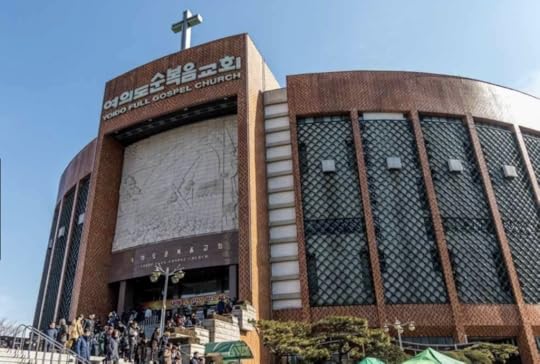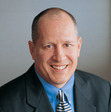Steve Murrell's Blog, page 43
November 28, 2018
Five-Minute Leadership: Helping Others Grow Their Faith w/ Joseph Bonifacio
A big part of discipling students is helping them build their faith.
Steve Murrell and Joseph Bonifacio sit down to talk through discipleship and faith.
#5MinuteLeadership
November 20, 2018
Five-Minute Leadership: Dealing with Ethnic Issues w/ William Murrell & Justin Gray
How do you define “we”? Steve sits down with Justin Gray and William Murrell to discuss how, as leaders, we can handle ethnic issues.
November 14, 2018
Five-Minute Leadership: Dealing with Affliction w/ Roger Pearce
Many are the afflictions of the righteous, but the Lord delivers him out of them all.
Steve Murrell and Roger Pearce talk about staying strong in times of affliction.
#5MinuteLeadership
November 8, 2018
Five-Minute Leadership: Keys to Relational Unity w/ Roger Pearce
Proximity brings clarity. Steve Murrell and Roger Pearce discuss what real reconciliation looks like.
#5MinuteLeadership
November 6, 2018
Who Are We Voting For?

MANILA—Today, millions of Americans will vote in another “high stakes” and bitterly partisan election. As always, this election will be billed as “the most important mid-term election in our lifetime,” and it will seem as if the future of life as we know it hangs in the balance.
As an American citizen who has spent most of my adult life in the Philippines, elections are a strange time for me. Over the past thirty-five years, I have rarely been in the United States to vote in person (thank God for absentee ballots). Because of this, I usually miss out on most of the bitter partisan debates leading up to the election. The election cycles that I have experienced most frequently and intensely are Philippine elections (which I cannot vote in).
There has always been something strangely liberating about being a foreigner in the pulpit during a Philippine election cycle. I can’t tell you how many times I have heard some version of this question: “Pastor, who are we voting for?”
The “we” so often being referred to in those questions is the alleged “Victory voting bloc.” Though it is impossible to tell if such a voting bloc actually exists (I highly doubt it), it is a common practice in the Philippines for politicians to seek the endorsement of a megachurch pastor or a bishop (with the assumption that “we” will all vote for the same candidate). Over the years, I have always answered this question the same way (whether to a church member or a politician): “We are not voting for anyone. I cannot vote in this election, but you should think about it, pray about it, and vote your conscience.”
While I understand that many church members asking this question simply want some biblical guidance on how they should assess candidates and issues, it is vitally important that pastors resist the urge to give easy answers by endorsing a particular candidate.
Why?
Because we want to make it crystal clear to our church members who “we” are.
As pastors, the “we” that we are called to serve, lead, and represent is the local church—Not the Republican party, not the Democratic party, not the Partido Liberal, not the PDP-Laban.
Though our members will vote and sometimes identify strongly with certain political parties and candidates, our job is to help them remember that the most important “we” or group they belong to is neither their political party nor their nation. It is the global church—the people who Jesus redeemed with His blood from every tribe, tongue, nation, and political affiliation.
When we identify our primary “we” as our church community rather than our political party, we are embracing a long-term view of the future and adopting a long-term strategy for godly influence and social transformation. When I first landed in the Philippines, the president was Ferdinand Marcos. He came and went, but the church I was privileged to lead continued to grow in size, strength, and influence. Marcos was succeeded by Cory Aquino who was succeeded by Fidel Ramos. Their power and influence grew and diminished, but the Church continued to grow larger and stronger. Then came Presidents Erap Estrada, Gloria Macapagal Arroyo, Benigno Aquino III, and now Rodrigo Duterte. I have seen six presidents come and go since Victory was established in 1984. President Duterte is the seventh. He too will leave the presidency and someone else will take his place. But the Church (not just Victory, but the whole Church) will continue to grow larger, stronger, and more influential for the glory of God.
A good question to ask our church members during contested election cycles is this: which “we” is more central to your identity—your church community or your political party? In an era of political and cultural divisions—ones fueled by the social media machine and twenty-four hour news cycles—it is more important than ever for pastors to fight tirelessly for unity in the church and to remind our people that first and foremost, we are all citizens of the Kingdom of Heaven.
October 31, 2018
Five-Minute Leadership: Leaders Are Learners w/ Luis Azañero
Real learning is not just about remembering facts, it is also about doing.
Steve Murrell and Luis Azañero discuss creating an environment for learning.
#5MinuteLeadership
Real learning is n...
Real learning is not just about remembering facts, it is also about doing.
Steve Murrell and Luis Azañero discuss creating an environment for learning.
#5MinuteLeadership
October 24, 2018
Five-Minute Leadership: The Gravity of Leadership w/ Brett Fuller
Steve Murrell and Brett Fuller talk the gravity of leadership: how to use your influence to produce greater results.
#5MinuteLeaership
October 18, 2018
Three Leadership Lessons from Korean Megachurches

SEOUL—This week, I am in Seoul, Korea, for the third and final residency period of my Asbury Theological Seminary doctoral program. It’s good to be back with my cohort (and the “Asbury Eight”), and it’s good to spend some face-to-face time with our professors, some of whom have come to be good friends.
Being in Korea again reminds me of the one of the first times I came here more than two decades ago. Like many young church planters in the early nineties, I took a pilgrimage to the Yoido Full Gospel Church (the largest megachurch in the world) to learn about prayer, small-group discipleship, and church growth.
In the late 80s and early 90s, Korea was in the midst of a historic revival.
In the middle of the twentieth century, after many centuries of glacial church growth in the traditionally Buddhist nation, something totally unexpected happened. Protestant Christianity exploded. From 1960 to 1990, the church in Korea doubled every ten years—growing from half a million in 1960 to eight million in 1990. The Korean revivals have been analyzed from many different angles by missiologists and church-growth experts (and critics), but three leadership lessons have stuck with me over the years since I first visited Seoul.
1. God reached Korea through urban megachurches. In a cultural moment when megachurches have become an object of scorn and are seen by some vocal critics as a symbol of everything that is wrong with “Western Christendom,” it is helpful to remember that God usually doesn’t consult us about when, where, and through what means He will build His church. To paraphrase my friend Ed Stetzer, God used the house church to reach China, and He used the megachurch to reach Korea—and both of these revivals were happening at the exact same time. Though most people have heard of Yoido Full Gospel Church, many people don’t realize that the city of Seoul is dotted with megachurches. At one point, five of the world’s ten largest megachurches were in Seoul! Megachurches are both a sociological phenomenon (requiring unique demographic and cultural conditions) and an ecclesiological phenomenon (requiring unique human and divine elements). To discount this method by which God built His church in Korea (and around the world) is both arrogant and ignorant.
2. Revivals in Korea resulted in a Korean missionary movement. My long-held admiration for the Korean church is not rooted in the seating capacities of its many megachurches but rather in its sending capacity. As a direct result of the revival of the 1960s, 70s, and 80s, the Korean church was catalyzed for global mission. In fact, by 2003, there were over 12,000 Korean missionaries in 160 nations. This means that the Korean church has sent more missionaries around the world than any other nation except the United States. When I think about the rapid church growth that has transformed Philippine Christianity in the 1980s, 90s, and early 2000s, my prayer is that our church growth (both at Victory and at other churches around the city) will result in a Filipino missionary movement.
3. The Korean church is aging. While Korean revivals and missionary movements are inspiring, some recent trends are sobering. For example, while the Korean church grew rapidly in the 1960s, 70s, and 80s, church growth plateaued in the 90s and was in slight decline in the early 2000s. On the one hand, we should all be humble enough to know that only God can bring revival and rapid growth. But on the other hand, we should recognize that sustained multigenerational growth cannot happen if established leaders do not equip and empower emerging leaders. If we do not build for and build with the next generation, we will lose them.
Being in Seoul again has reminded me of the urgency of my dissertation research—as I reflect and write about post-founder sustainability in both megachurches (like Victory in Manila) and church-planting movements (like Every Nation). As someone who has had a front row seat to many decades of rapid church growth and global missionary expansion, I want to learn as much as I can from my brothers and sisters in Korea through whom God has done, and is still doing, great things.
October 17, 2018
Five-Minute Leadership: Influence or Intimidation w/ Brett Fuller
Is there a difference between influence and intimidation? Steve Murrell and Brett Fuller sit down to discuss what happens when you use the wrong leadership style.
#5MinuteLeadership
Steve Murrell's Blog
- Steve Murrell's profile
- 53 followers



